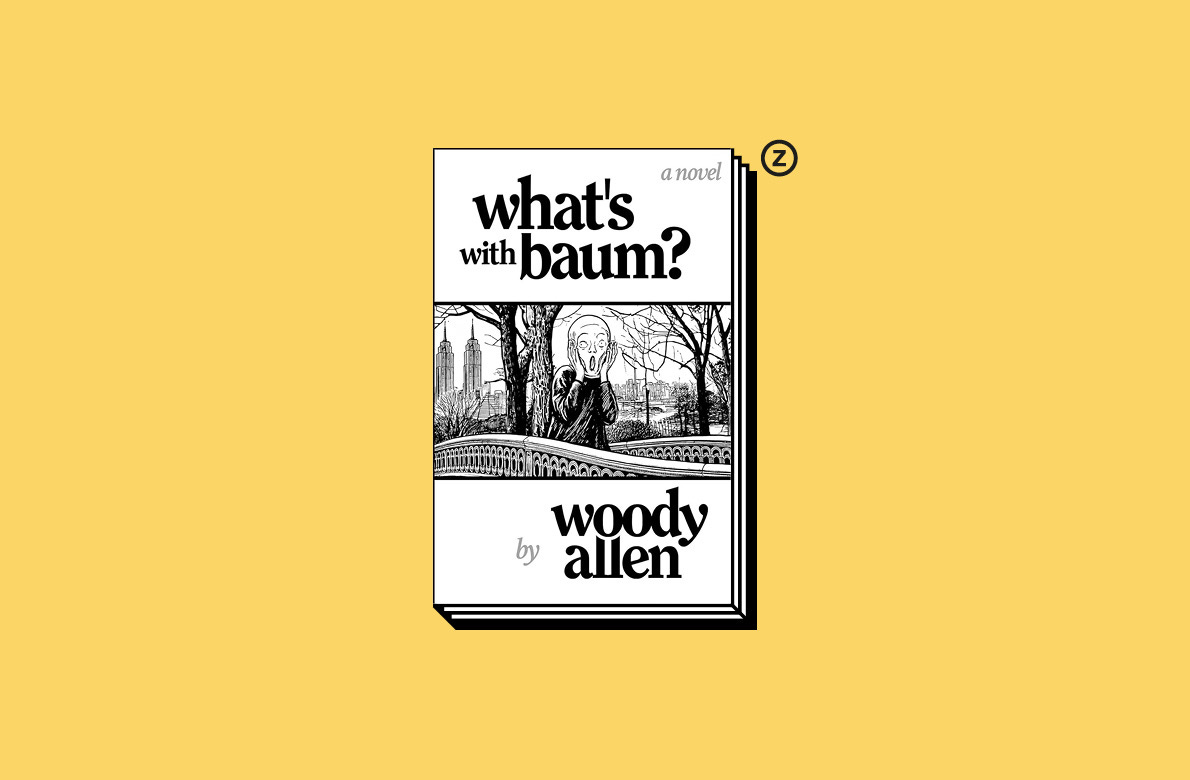Same schtick, different format
Thoughts on What's with Baum? by Woody Allen
I should write up my thoughts on Woody Allen’s first novel.
I went out of my way on a work trip to Las Vegas recently to get a taxi from my hotel to Barnes & Noble, knowing they’d have a copy.
I’d tried the Waterstones back in Sheffield with no luck. I didn’t attempt the independents. And even Amazon messaged me about my pre-order, saying they couldn’t get a copy.
Distribution issues are not new for Allen. I ordered one of his last DVDs and it came in a brown, unmarked jiffy bag, like I’d ordered weed off the dark web, or a sex toy from Vinted. I’ve not even been able to find a way to watch his last film, Coup de Chance.
No. When it comes to getting his art into the world these days, Allen doesn’t have the best of times. We all know something about why. None of us knows everything. But let’s not get bogged down in the whole evil/innocent debate.
Instead, I should write up my thoughts on Woody Allen’s first novel.
Trouble is…
I’m working on my own novel at the moment.
I have a couple of books to read for the podcast.
I have work to do, things to research, and copy to write.
I have a house to decorate. I have Pablo to walk. I have dinner to cook.
In other words, I’m busy.
I’m no more or less busy than anyone else. But the key thing is, I have stuff I would prefer to be doing other than writing about Woody Allen’s first novel.
I imagine that’s the case for most people. But anyone who knows me knows I’m a big fan of Woody Allen’s work.
I’ve written before about the fact that I would not be a professional writer today if it weren’t for reading Allen’s first short story collection, Getting Even, when I was in my early 20s. It was a huge factor behind my decision to derail my promising career in local government in the hope of becoming a writer.
Despite the controversy around his character, I still get excited when Woody Allen releases something new and, given I like writing about things, I should be psyched—as they say—to write about Woody Allen’s first novel.
So, I should write up my thoughts on Woody Allen’s first novel.
But then…
I realise now I’m mostly writing about myself and the fact that I’m not writing about Woody Allen’s first novel.
I’m using the same repeating line, a refrain of sorts, which—on a meta level—I’m hoping you’ve noticed by now.
I’m hoping you’ve noticed (and I’m overtly signalling it here) because the fact that I’m using the same refrain over and over again mirrors my main takeaway from reading Woody Allen’s first novel.
Repetition can be an effective dramatic tool.
Revisiting ideas can be an effective approach for an artist, too.
The problem is, as someone who has watched all of Allen’s films, read all of his books, listened to all of his stand-up and even paid a hefty sum to sit in the Carlyle (next to Bill Murray, weirdly) to watch the man play jazz...
It seems there is a limit to how many times you can repeat the same refrains and revisit the same ideas.
Sure, I find Allen’s schtick fun. I enjoy it. I’m an alarmist like him. I’m neurotic, awkward, and taken by art and philosophy. And like Allen, I have an insecurity around so-called high art, which results in me making light of everything and pointing out too many times that I’m no Kafka.
All of this schtick is present in What’s with Baum? and it’s kind of enjoyable in the moment. But you can only point out you’re no Kafka so many times before the reader starts thinking it’s true, and though, as a reader, you weren’t particularly looking for any great depth in the writing, the fact that the lady doth protest too much about the absence of depth makes you want to protest it yourself.
In his previous literary outing, Zero Gravity, and in most of his other books, the short story form lends itself to the frivolous bent Allen has made his own. For some reason—and maybe I’m tetchy because I suffer the same problem—the novel format seems to elevate the frivolity/gravitas challenge to a point where it’s difficult to ignore.
And so, without any real idea or narrative driver holding the novel down (the Allen-adjacent protagonist is essentially having a bad day/midlife crisis), all that’s left is Allen’s familiar repertoire of funny lines, observations, and awkward situations.
Don’t get me wrong, I’m someone who (often despite himself) loves the schtick. But that doesn’t make the fact that the schtick is the same as it ever was any less true.
My recommendation: If you’re one of a very exclusive and endangered group of Woody Allen completists, go for it. You’ll chuckle and come away a little let down, which is a feeling you’ll be used to having watched many of his later films. If you’re not a fan, I’d skip the taxi to Barnes & Noble and instead put all your book money on black.



